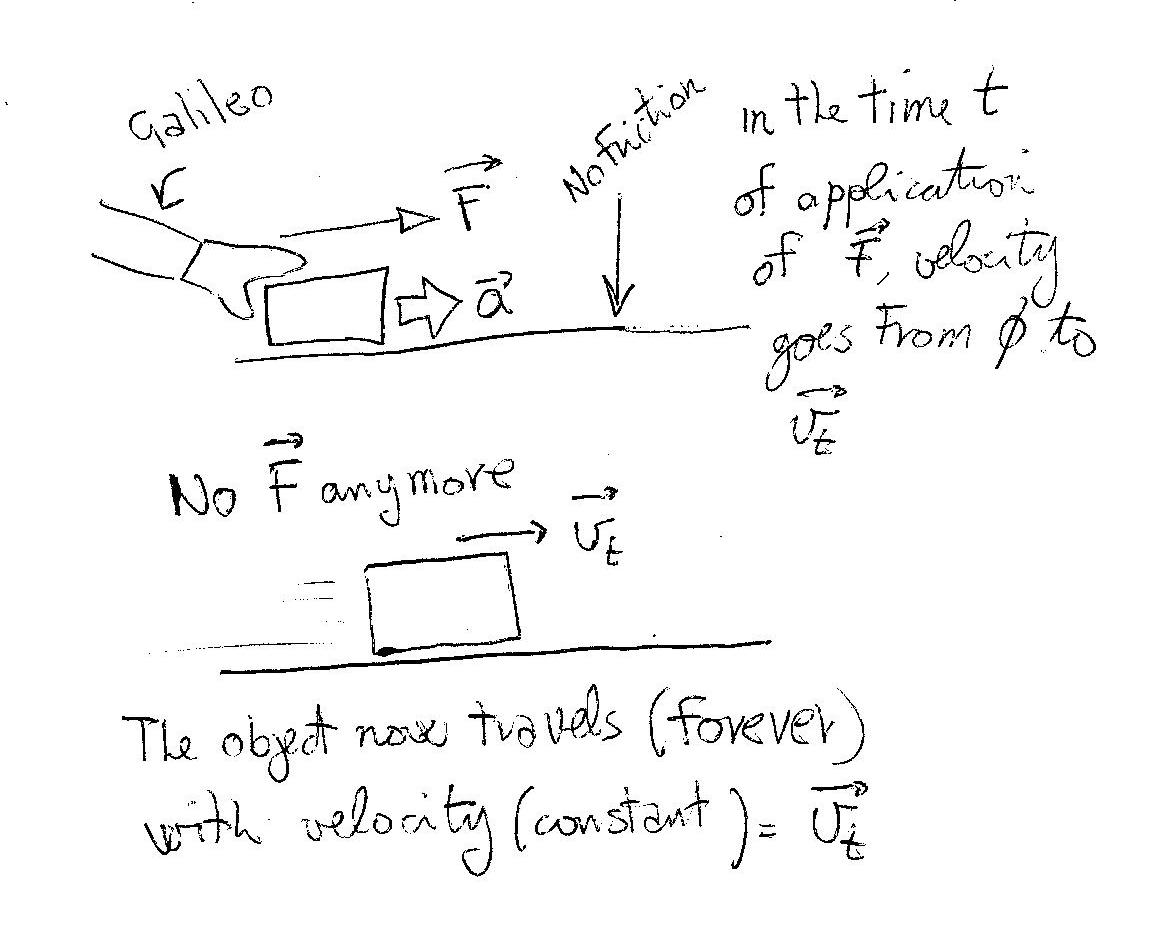Question #0bd68
1 Answer
A force
If the object was initially at rest, it starts to move (its velocity changes from zero to a certain amount).
If the object was initially moving with a certain velocity its velocity increases (or decreases).
When the instant passes and the force does not act anymore the object keeps on moving with the last velocity it had!!!!!
Galileo was the first to realize a curious thing: if you push and release an object on an horizontal table it moves but then it stops! But if you make the surface smoother the object stops anyway BUT further away than the first time. He thought that if he could perfectly smooth the surface (no friction) the object would continue moving with constant velocity!!!

The force (produced by the hand of Galileo even for a short instant
A physical law or scientific law "is a theoretical principle deduced from particular facts, applicable to a defined group or class of phenomena, and expressible by the statement that a particular phenomenon always occurs if certain conditions be present.
(taken from: "Law of Nature". Oxford English Dictionary (3rd ed.). Oxford University Press. September 2005.)
You can test this yourself. If you push a bike (you apply a force) you can move it (cause acceleration). If you try to push (same force from you) a car maybe you move it (acceleration) but you do not go very far!!! There is something limiting the action of your force...the MASS of the car (which is bigger than the one of the bike)!!!!!!

